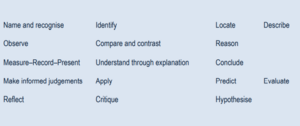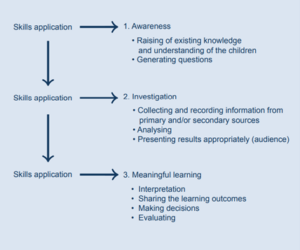- Kendal,
- Cumbria LA8 9LB
Subject Leader – Miss Mia O’Callaghan
Intent
At Selside School, we use a variety of teaching strategies in our geography curriculum, allowing all children to access high-quality learning. We enable children to make informed decisions about their future by developing a broad range of skills in real world contexts. We aim to stimulate interest and curiosity about the world we live in and teach our pupils how to look after it. We implement a progressive geography curriculum that builds on prior knowledge and skills throughout the years. Geography has meaningful links to other subjects such as RE, history, PE, and art and design, science as well as our local area.
Implementation
We use the Collin’s Connected Curriculum units to support our teaching and learning which we have linked to our local area to utilise the unique geography of the Lake District and Yorkshire Dales National Parks as well as Morecambe Bay. The Connected geography enquiries ensure that pupils are progressively challenged to achieve more demanding outcomes as they become more mature learners – progression which reflects increasing mastery of the subject looking at 3 Key learning indicators which are the golden thread that weave through our geography curriculum:
We recognise that whilst it is important for pupils to increase and extend their knowledge of the subject, it is also vital that they have space and time to develop the concepts and skills of young geographers. Important subject knowledge is implicit in each enquiry, but this is balanced with adequate time and opportunity for pupils to master key subject skills and outcomes by ‘doing less better’. We break topics in to key concepts to focus on:

Our Geography enquiries ensures that pupils are progressively challenged to achieve the following outcomes as they move through the programme. This progression reflects increasing mastery of the subject, which is highlighted in the learning objectives of each investigation:

The Connected Geography asks big questions about topics, places, themes and issues – questions that are relevant if you are going to live to see the next century. At Key Stage 1 many of these questions will understandably be more tightly defined or closed ‘Who’, ‘What’, ‘Where’ and ‘When’ questions but a Key Stage 2 a more open ended approach will be apparent to teachers with an emphasis on ‘Why’ and ‘How’ questions. Each enquiry has a key question underpinned by several ancillary or sub questions for the pupils to master in turn as they progress through the investigations and fieldwork.
The key question enquiry structure adopts the approach of initially identifying where the pupils are in terms of their experience or knowledge of the focus of the enquiry; then supporting them to complete a number of ancillary question investigations to progress their understanding; and finally assisting them to make sense of the progress they have made through.

Geography Long Term Plans Year A
Geography Long Term Plans Year B
Geography assessment &V vocabulary
What does Geography look like in the EYFS
PRIMARY_national_curriculum_-_Geography
Enrichment and Culture Capital
Pupils learn the importance of caring for and appreciating our world, including our local area. Our core values are golden threads of our geography scheme: we aim to develop the children’s respect the world around them, teach children to be thankful and to show courage to be stewards of the earth and highlight the significance of friendship with our global neighbours through enquiries such as fair trade. This approach helps to expand our pupils social, moral, spiritual and cultural development. Our geography curriculum not only develops our pupils educationally, but we plan in experiences to develop our children’s cultural capital such as trips and residentials to Manchester, Lake District, Yorkshire Dales and London, as well as trips to our local area including the woodland, farms, towns and the Mountain Festival. Our curriculum also provides many opportunities for outdoor learning and we have orienteering maps designed specifically for our school.
Impact
We want our Pupils to become Geographers who have:

